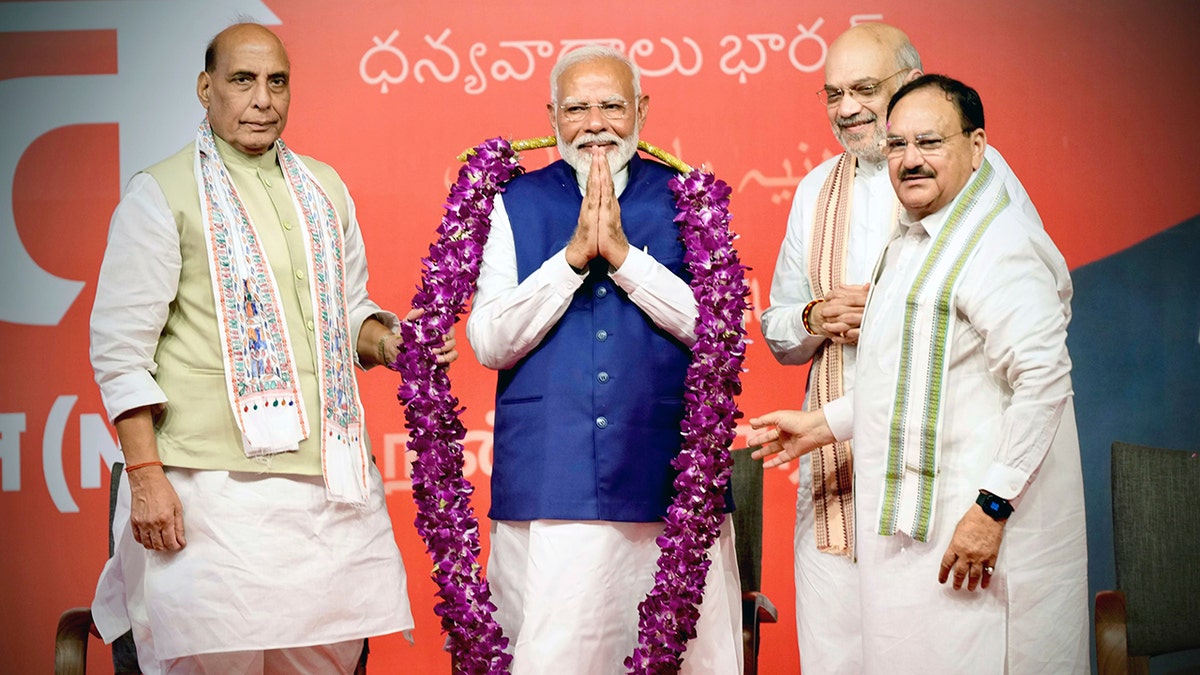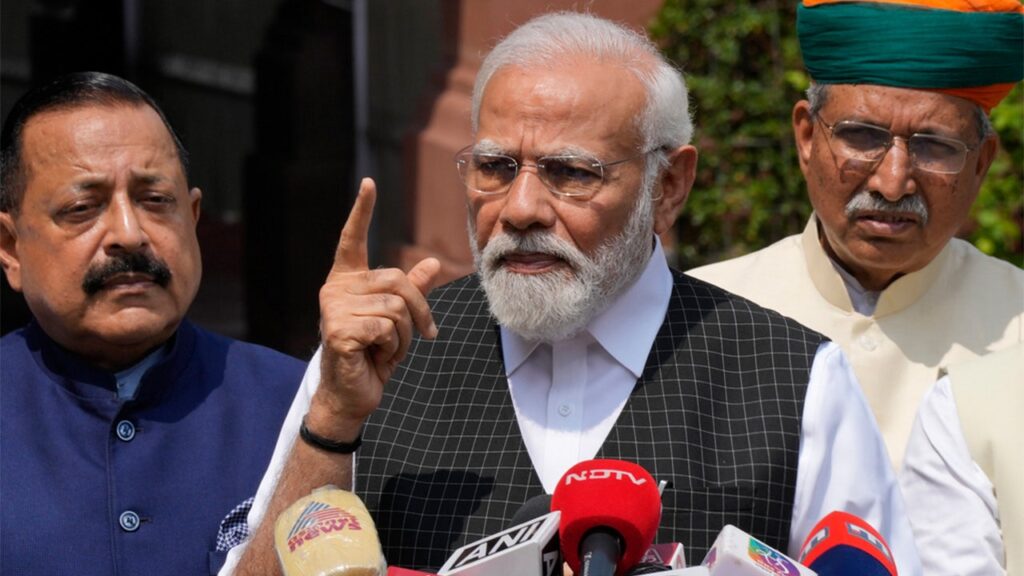India’s Prime Minister, Narendra Modi, is giving the armed forces near complete freedom of action to respond following a deadly attack on tourists in the disputed Jammu and Kashmir region on April 22 that saw 26 people killed by terrorists. India and Pakistan have exchanged fire every day since the attack along the Line of Control that separates the Indian and Pakistani areas of Kashmir.
The Times of India reported on Tuesday that Modi has given the military the operational freedom to decide on the mode, targets, and timing of the response to the attack in Kashmir.
PAKISTAN FEARS INDIA INCURSION ‘IMMINENT’ AMID HEIGHTENED TENSIONS FOLLOWING TERROR ATTACK
Modi is set to convene another meeting of the Cabinet Committee on Security (CCS) on Wednesday to coordinate India’s next moves.
Modi recently said India will “identify, track and punish every terrorist, their handlers and their backers,” in a post on X. “We will pursue them to the ends of the earth,” Modi added.
India’s Defense Minister Khawaja Muhammad Asif told Reuters that the country has mobilized its forces because retaliation is “something which is imminent now.”
The Resistance Front (TRF), an extremist group linked to the Lashkar-e-Taiba terrorist organization based in Pakistan, claimed responsibility for the attack in Pahalgam. Lashkar-e-Taiba was responsible for the 2008 Mumbai attacks and is known to have links with the Pakistani military and a partnership with Pakistan’s Directorate for Inter-Services Intelligence (ISI).
Pakistan has denied any involvement in the attack.

The attack, which killed 26 people and was the worst terrorist attack on India since the 2008 Mumbai attacks, has increased tensions on the Indian subcontinent between two nuclear-armed powers.
“An Indian military response is likely reflecting the more muscular foreign policy of the Modi government as noted by its actions following previous terrorist attacks,” Chietigj Bajpaee, senior research fellow for South Asia at Chatham House, told Fox News Digital.
HERE’S WHY A FLARE-UP BETWEEN INDIA AND PAKISTAN OVER KASHMIR MATTERS
Bajpaee noted that a surgical strike or airstrike is the most likely form of retaliation, and the response will likely take a calibrated approach to limit collateral damage and civilian casualties and to control the escalation ladder in order to keep the conflict below the nuclear threshold.
“However, this is easier said than done given the possibility of accidental escalation” and a “broader tit-for-tat military escalation cannot be ruled out,” he warned.
Although there was limited outreach from Modi in the past, two rounds of escalation in 2016 and 2019 have soured relations.
Sadanand Dhume, senior fellow at the American Enterprise Institute, told Fox News Digital that Modi is facing pressure to mount a tough response.
“The Indian public is outraged by last week’s terrorist attack in Kashmir, and Prime Minister Narendra Modi is under immense pressure to respond to the atrocity by striking Pakistan, which has long sponsored attacks on India,” Dhume said.
INDIA VOWS TO HUNT TERRORISTS ‘TO THE ENDS OF THE EARTH’ AS TENSIONS WITH PAKISTAN RISE AFTER KASHMIR ATTACK
Already India has suspended the landmark 1960 Indus Water Treaty, a key water-sharing agreement covering rivers that overlap both countries. Pakistan’s Minister of State for Law and Justice told Reuters that Islamabad plans on challenging India’s suspension of the treaty and is raising the issue with the World Bank.
Pakistan said the impediment to the free flow of water would constitute an act of war.
The rivalry between India and Pakistan dates back to the partition of the former British colony of India in 1947, with the establishment of Muslim-majority Pakistan and Hindu-majority India. The partition plan also provided the contested regions of Jammu and Kashmir with the opportunity to choose if they wanted to join either newly established nation. Kashmir ultimately decided to join India in exchange for help against invading Pakistani militias, with India and Pakistan fighting three wars over the territory since 1947.
India and Pakistan have an estimated combined 342 nuclear warheads, according to the Arms Control Association.
Read the full article here

